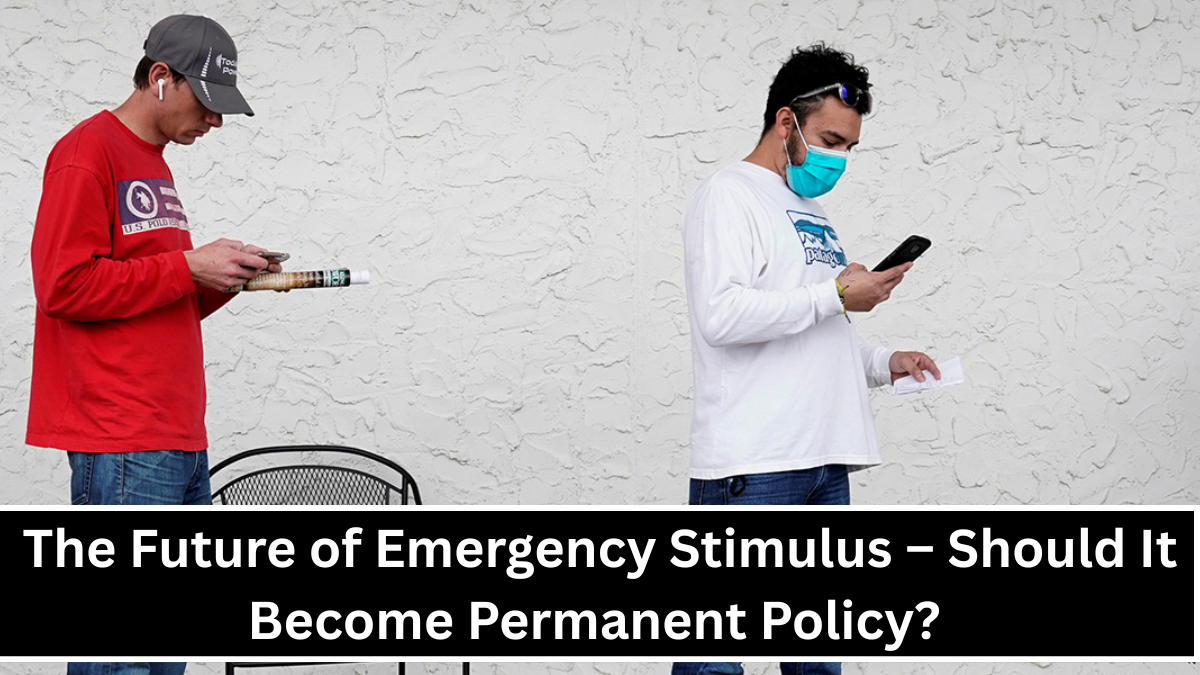During hard times—like the COVID-19 pandemic—governments around the world gave people financial help through emergency stimulus payments. These payments helped families pay for rent, food, and other basic needs when jobs were lost and businesses were closed. For many, this money was a lifeline. But now that the crisis has passed, a big question remains: Should emergency stimulus become a permanent part of government policy? Should people get regular payments during tough times—even without a global emergency? This article explores the idea, looking at the benefits, risks, and future possibilities.
“The Stimulus Safety Net” – Rethinking Financial Help for Citizens
In simple terms, emergency stimulus is money that the government gives to individuals or families during a crisis. It can come as direct payments (like checks or bank deposits), increased unemployment benefits, or extra support for low-income households. The goal is to boost the economy and help people survive financial trouble. During the COVID-19 pandemic, countries like the U.S., Canada, and many in Europe gave large stimulus packages to prevent economic collapse. In the U.S., for example, people received several rounds of direct checks, sometimes called “stimulus checks.” These payments helped millions of Americans avoid eviction, feed their families, and pay bills.
Supporters of permanent stimulus believe this safety net could be expanded and offered even outside of global emergencies. It could be used during local recessions, natural disasters, or even when the cost of living spikes. Some call it a step toward Universal Basic Income (UBI)—a system where people get regular payments simply for being citizens. However, critics argue that too much government spending can increase inflation, reduce motivation to work, or lead to higher taxes. So, the real debate is: can we build a smart, targeted system that helps people when they need it—without harming the economy?
The idea of making emergency stimulus a permanent policy is both bold and complicated. On one side, it offers security, reduces poverty, and can stabilize the economy during downturns. On the other, it raises questions about cost, inflation, and long-term effects on society. While it may not be practical to send everyone money all the time, creating a system that reacts quickly to crises could protect people and the economy more efficiently than the slow-moving responses of the past. The future may lie in flexible stimulus programs—ready to launch when people need them most, not just when it’s too late. As the world recovers and prepares for future challenges, the role of stimulus will remain a hot topic in both politics and public policy.
FAQ’s:
Q1. What is emergency stimulus?
A1. Emergency stimulus refers to financial aid given by the government during economic crises. It usually includes direct cash payments or extra support for people who lose income or jobs during tough times.
Q2. Why are some people asking to make stimulus payments permanent?
A2. Many believe that permanent or automatic stimulus programs could provide faster help during future emergencies and reduce poverty and inequality on a long-term basis.
Q3. What are the risks of permanent stimulus payments?
A3. Some risks include higher government debt, inflation, and possibly reduced motivation for some people to work if they rely too much on free money.
Q4. Is permanent stimulus the same as Universal Basic Income (UBI)?
A4. Not exactly. Emergency stimulus is given during crises, while UBI is a fixed, regular payment given to all citizens regardless of income or situation. However, some see stimulus as a step toward UBI.
Q5. Could targeted stimulus be a better solution?
A5. Yes. Many experts suggest that instead of sending money to everyone, the government could create automatic, targeted systems that help people in need during specific conditions, like rising unemployment or natural disasters.
